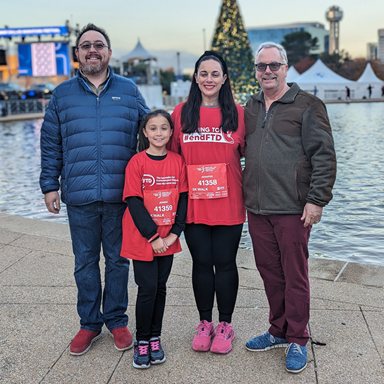Priority Area 2: Quality Care and Support
The disruption and isolation so often brought by FTD are heightened by a profound lack of high-quality care and support options.
How can we pave a path forward?
By ensuring that high-quality care and support are accessible to anyone affected by FTD at every stage of their journey.
How will AFTD take action over the next three years?
Scale AFTD’s core support services to serve more people, enhance accessibility, and ensure responsiveness to community needs
- Evaluate and expand resources to support and educate those impacted by FTD
- Optimize the HelpLine to meet the needs of all who contact us
- Strengthen the Comstock Grant Program to ensure access for the community and sustainability of the program
- Expand the number of volunteers leading support groups and in other support roles; enhance the training and support provided to these volunteers
- Scale AFTD’s support group network to meet the needs of those impacted by FTD across communities and relationships to the disease
Develop new ways to connect people to care and support that address the holistic needs of all families
- Survey the community to assess current gaps in support
- Identify family constellations and developmental stages for priority development of services and supports
- Create resources and build partnerships to satisfy families’ unmet needs
- Develop FTD roadmaps identifying support and resources tailored to different community segments
Establish AFTD as the central resource for tracking and disseminating emerging best practices for FTD care and support
- Continue to monitor and compile best practices in FTD care and cultivate relationships with professionals conducting care research
- Partner with dementia networks and organizations to gather up-to-date information on best practices and build dissemination pipelines
- Determine and implement effective, sustainable mechanisms to disseminate information on emergent best practices
- Identify and prioritize participation in forums that position AFTD as a key partner in the development of FTD care and services for all populations
Advance research to better understand and address factors that impede well-being for all touched by FTD
- Continue support for the Well-Being in FTD Pilot Grant program
- Use the FTD Disorders Registry and research engagement tactics to document and disseminate the values, priorities, and experiences of all people touched by FTD as they relate to controllable, non-biologic factors influencing quality of life and well-being
- Seek opportunities to improve the evidence base and research toolkit to inform clinical care, support, and policy to improve quality of life for all people touched by FTD
- Continue to learn about and amplify the lived experiences of all people impacted by genetic FTD




Strategic Plan Highlights
Download the full AFTD Strategic Plan 2025-2028

